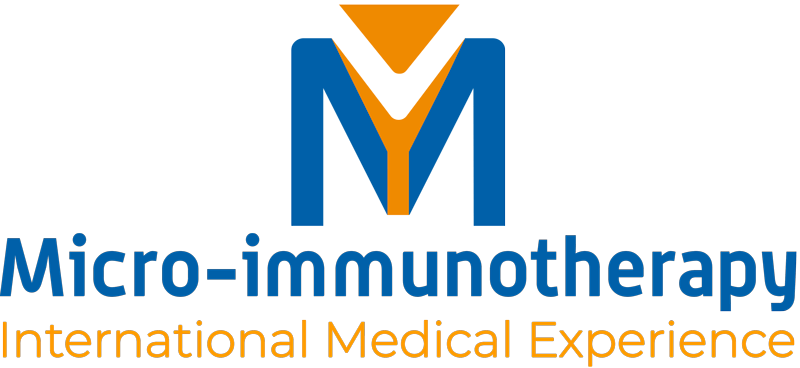Summary of the content:
1. Is there a way to effectively and sustainably help the chronic fatigue patient?
2. Frenzy & Exhausted Immune Systems
3. Damping The Blaze Through Gentle Immunoregulation
(If you click on it, you will go directly to that part of the post)
Is there a way to effectively and sustainably help the chronic fatigue patient?
Chronic Fatigue Syndrome (CFS) remains a very diffuse clinical picture, with variations from patient to patient, and its exact etiology has yet to be elucidated. This therapeutic challenge forces us to take a different approach and to think out of the box.
3 underlying immunopathological factors have been observed in CFS research and clinical practice:
1) latent viruses,
2) silent inflammation, and
3) mitochondrial dysfunction.
It is from an immunological angle that the interrelation between these three factors is best understood. Keep reading to discover how these factors can be addressed intelligently and in a targeted way with micro-immunotherapy, and how you can tackle CFS at its root, gently helping patients from the ground up.
Frenzy & Exhausted Immune Systems
Chronic Fatigue Syndrome is multifactorial in nature and hard to trace back to a single trigger. However, in more than half of patients with CFS, it all starts with an acute viral infection (e.g. mononucleosis, COVID-19) the symptoms of which linger on for months.
It is known that, when immunity is disrupted or compromised (e.g. due to coinfections, trauma, chronic stress, malnutrition, toxins), latent viruses can reactivate, burdening human defences

Reactivated viruses (e.g. EBV, CMV) correlate with an increased viral load driving immunity into a state of persistent activation that contributes to further wearing out a system that is already on fire, as shown by the fact that CFS patients exhibit increased levels of proinflammatory cytokines such as IL-1 and TNF-a (IL-1 is in fact a major mediator in fatigue pathways).
Over time, this systemic, sustained, silent inflammation leads to increased oxidative stress, mitochondrial dysfunction and misconsumption of bioenergetic resources. Taken together, it all boils down to an exhausted immune system that reacts to stressors in a frenzy way, lacking or spoiling energy, unable to mount an effective response to non-self or even, eventually, confusing self and non-self.
Damping The Blaze Through Gentle Immunoregulation
In Chronic Fatigue Syndrome, the underlying immunometabolic dysregulation forms a vicious cycle that may spark the onset of other diseases (e.g. autoimmune diseases, tumoral processes, metabolic or neurodegenerative diseases) if left untreated or managed inappropriately.
Merely blocking certain mediators or patching the symptoms of a disrupted system will not break this vicious cycle nor restore immune homeostasis and health.
The cornerstone of sustainable and effective interventions lies in aligning with the organism’s natural rhythms and restoring the body’s inherent self-regulatory capacities.
The immune system plays a key role in the regulation of these rhythms. Working with it requires us to understand its fine-tuned nature as a network that works through cytokine-driven orchestration. This understanding constitutes the basis of the micro-immunotherapy approach.
3 Game-Changing Therapeutic Targets of Micro-immunotherapy in Chronic Fatigue Syndrome
Unlike other immunomodulatory approaches, micro-immunotherapy is a form of immunotherapy that draws from the natural functioning of the immune system. It is based on the administration of cytokines and other mediators in low doses, at concentrations equal to or below physiological levels, to restore balanced and effective immune function.
By administering these mediators sequentially, in varying compositions, micro-immunotherapy intervenes at each stage of the immune response.
This step-by-step method is aimed at gradually retraining the immune system, helping it return to a balanced state instead of overactivating it or suppressing its function.
This approach can be integrated into multimodal treatment strategies to address the dysregulations at the root of Chronic Fatigue Syndrome. It allows to act at 3 fundamental levels:

Reduce the viral burden by neutralising infectious triggers
Specific micro-immunotherapy formulas are designed to promote an effective antiviral defence against latent viruses such as EBV or CMV, allowing to reduce the viral burden. In this way, one of the factors driving excessive immune activation can be neutralised, contributing to alleviating fatigue symptoms, preventing the onset of other diseases and paving the way for the patient to recover homeostasis.

Modulate inflammatory signalling pathways
The micro-immunotherapy toolkit also includes formulas with a sequential composition aimed at recalibrating the immune-inflammatory response in a well-tolerated way. It allows to act directly on inflammatory signalling pathways, lowering the production of proinflammatory cytokines, which play a significant role in perpetuating chronic fatigue.

Address the cause of excessive ROS production and balance energy metabolism
A specific micro-immunotherapy formula addresses mitochondrial dysfunction by targeting signalling pathways directly involved in ROS production. It aims at reducing stress on the mitochondria and supports their role in effective energy production. By dampening oxidative stress and inflammation, it allows mitochondria to optimise their function, promoting better cellular energy output and reducing bioenergetic inefficiencies.

Micro-immunotherapy At Your Reach To Enhance Your Practice
Integrating micro-immunotherapy into your therapeutic strategy provides a pathway towards restoring immune equilibrium, thus empowering patients on their journey to recovery.
Interested in reshaping your management strategies for Chronic Fatigue Syndrome?
